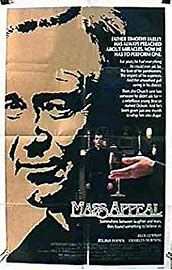Perhaps John Cassavetes’ strangest and most
inexhaustible film, Love Streams confounds any notion of the director as
being primarily an excavator of everyday emotional truths, embracing the heightened
artificiality evident in all his work and pushing it to the point of near
psychosis, such that by the end, characters are motivated by dreams (and
further, dreams taking the form of operas) as much as by realities, and a character
that appeared to be a dog temporarily reveals itself as a man. The title refers
to the preoccupation of Gena Rowlands’ character, Sarah, with love as a “continuous
stream” that doesn’t stop, a philosophy that as she enacts it consumes her in
excessive behaviour and impulsiveness and recurring breakdown; Cassavetes plays
her brother, Robert, whose relationship with love, or with humanity more
generally, might better be represented as one of endless pivoting and
zig-zaging, losing himself in shallow or short-lived connections, his self-absorption
(albeit shrouded by a general air of formality and courtliness) often tumbling
into cruelty (on being tasked with looking after his eight-year-old son for the
first time ever, he flies the kid to Vegas and leaves him alone in a hotel room
all night). The film’s final act represents a series of high-stakes
substitutions: Robert now forcibly alone, constrained by a somewhat absurd bunch
of animal care obligations, symbolically further isolated by darkness and
storm; Sarah heading off to spend the night with a guy she just met, with some supposed
new understanding with her divorced husband lying beyond; the fabric of the
film seemingly heaving and splitting. Much of the film was shot in Cassavetes/Rowlands’
own house, evidencing a lived-in solidity that couldn’t likely have come from Robert,
but for everything that feels strangely personal, the film provides an
offsetting cavernous abstraction (confining its glimpses of Sarah’s European trips
to concrete hellholes); it sometimes feels like the entire human condition flows
(or snarls) through the film at one point or another.





